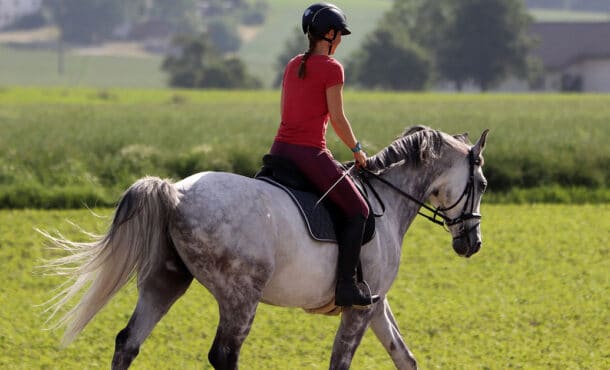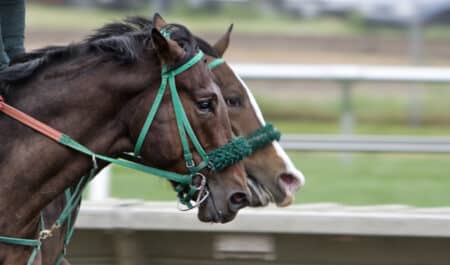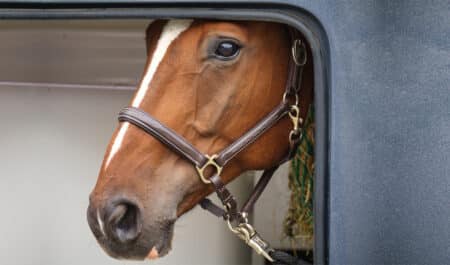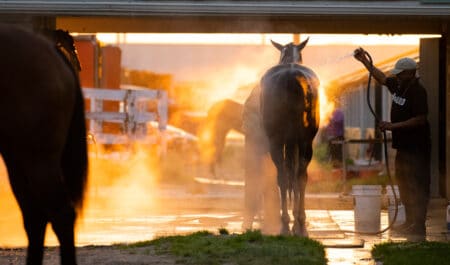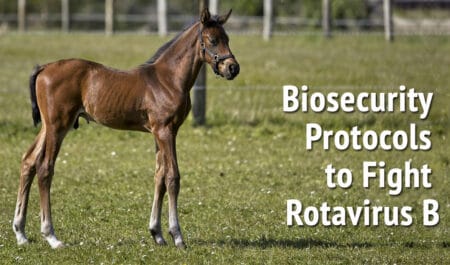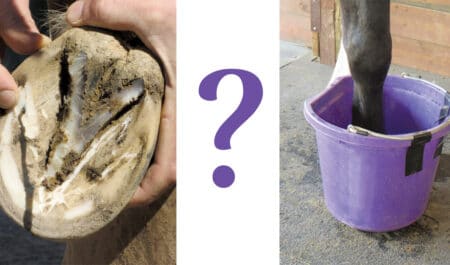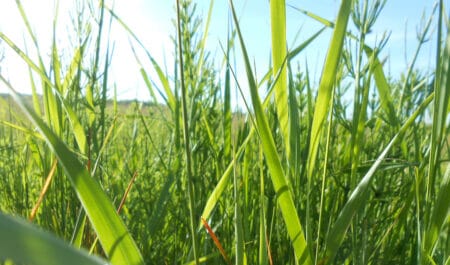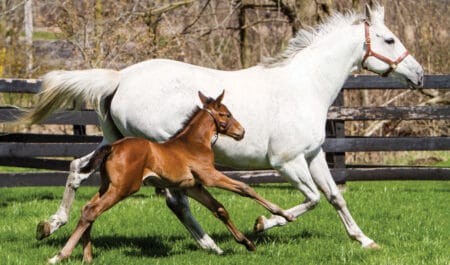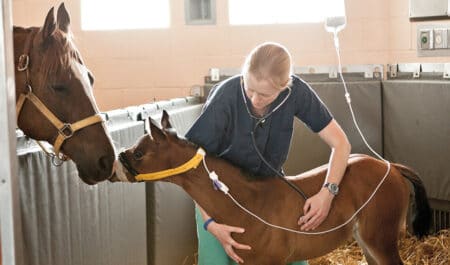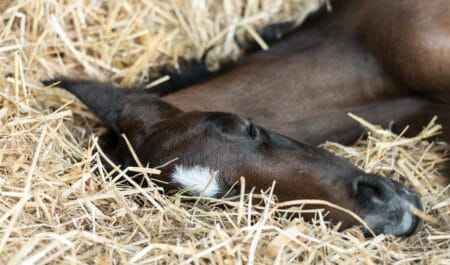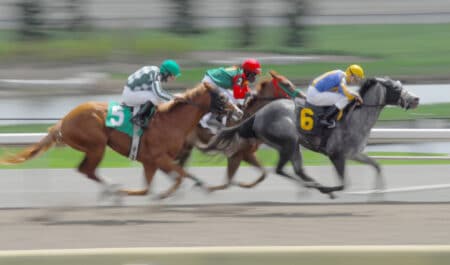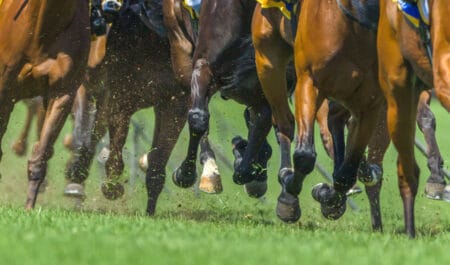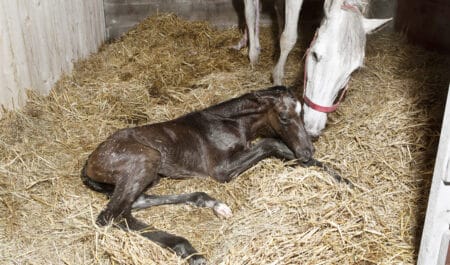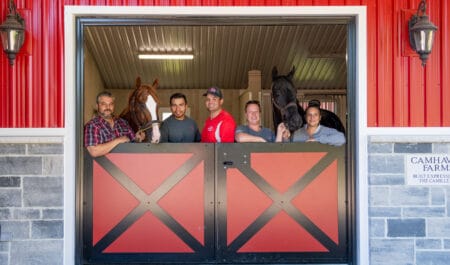Working with horses can provide us with numerous benefits to both our physical and mental health.
Thoroughbreds comprised the largest population of a study at the UK which looked at infections of these extensive air-filled cavities.
This most severe form of pneumonia associated with long-distance shipping often requires long-term hospitalization to resolve.
These spasms of the diaphragm similar to human hiccups made the news after The Minkster's poor performance in the Plate Trial.
Opinion and policy vary widely in Canada as to when combined heat and humidity make racing too dangerous for racehorses.
Equine breeding facilities need to act quickly to prevent the spread of this highly contagious, deadly disease that causes diarrhea in foals.
Prolonged soaking in warm water has long been the go-to treatment for abscesses, but the practice may actually be detrimental to healing.
A seed-borne fungus in tall fescue has been linked with compromised health, especially in pregnant mares grazing on large amounts.
Research indicates that growing horses' skeletal strength is highly influenced by the daily strains their bones undergo.
Whether maiden or experienced, many mares are able to deliver their charges with ease, but unexpected challenges can make every second count.
Any abnormal behaviour should be dealt with quickly, as sepsis carries the risk of infection and inflammation in many of the body's systems.
KER researchers found that cardiovascular fitness on the racetrack can be correlated to heart rate at the trot on a mechanical walker.
A study examined years’ worth of records to help forge real-world solutions to prevent Thoroughbred breakdowns during training and racing.
This life-threatening disease in foals causes diarrhea and anorexia; recent research suggests that a novel group B rotavirus has emerged.
The Camilleri's shiny new Training and Wellness Centre in Caledon is set to be the premier facility for equine athlete rehabilitation.
